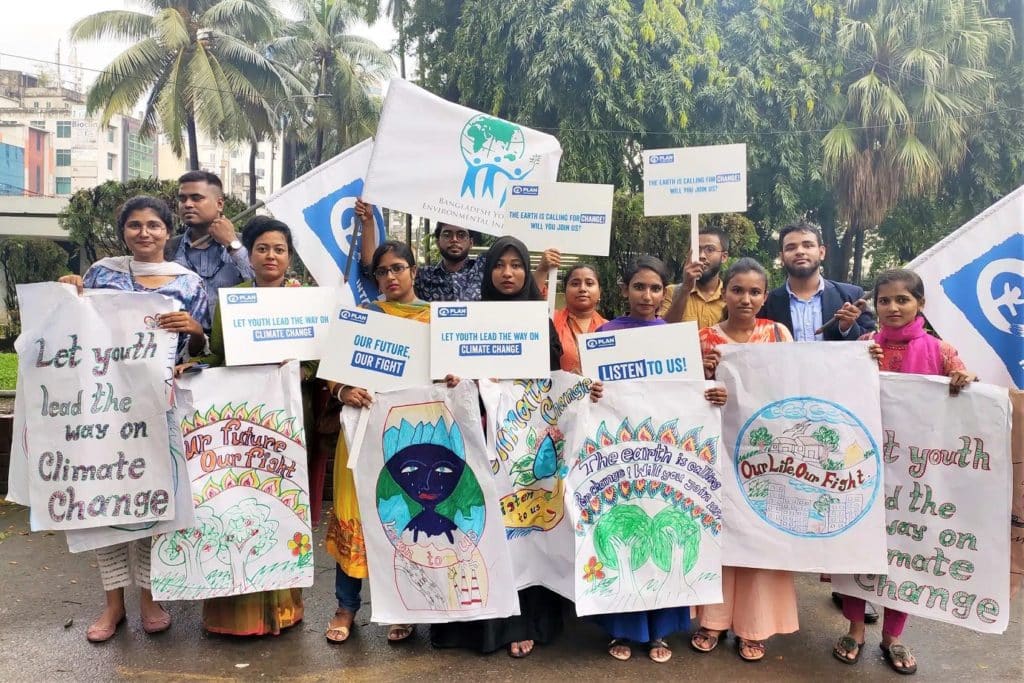Young people across the globe are demanding greater climate action at this year’s COP27, naming this the greatest intergenerational justice youth face today.
A new report by Plan International found that between 1990 and 2015, the richest 1 per cent of the world’s population were responsible for more than twice as much carbon pollution as the poorest 50 per cent.
And yet, it’s the children and grandchildren of the poorest 3.1 billion people in low-income nations who will pay the ongoing and escalating price.
This critical report was written and researched by young people, including the lead author and researcher, Ineza Umuhoza Grace– a 25-year-old feminist and climate advocate from the Loss and Damage Youth Coalition in Kigalia, Rwanda.
“Loss and damage caused by climate change is already affecting millions of children’s and youth’s lives, particularly girls and young women,” warns Grace.
“This year we have witnessed extreme flooding in Bangladesh, China, Pakistan, and South Africa and Australia; heatwaves in South Asia, United States, and Europe; and drought and food crisis in Western and Eastern Africa.”
“The duty to act could not be more urgent. The rights and wellbeing of youth today, future generations and the planet are at stake,” she says.
World leaders, climate experts and environmentalists are meeting in Egypt this week for the COP27 climate change conference and Plan International says the Australian government must stand with youth like Grace, calling for a commitment to address the irreversible and life-changing impacts of climate change.
Plan International Australia’s CEO, Susanne Legena says: “The climate crisis is no longer simply an environmental crisis, but a human rights and survival issue.”
“World leaders and power holders need to step up and support the most climate-affected countries.”
Janice Rodrigues, a Sydney-based youth advocate and delegate at the Asia-Pacific Ministerial Conference on Disaster Risk Reduction conference in Brisbane in September, says that wealthier countries like Australia have greatly contributed to climate and therefore have a duty to use resources to help young people across the globe with lived climate disaster experience– especially those in the Pacific who’ve been leading community initiatives in the aftermath of these disasters.
“Loss and damage from climate change is not a future problem– it is happening right now,” says Rodrigues.
“The report amplifies a perspective often ignored at COP, that of the next generations. Today’s youth generation is the largest in history, which is why global leaders must ensure political decisions on finance for loss and damage are made through an intergenerational and gender equality lens at COP27.”
This gender equality lens is also crucial as Legena points out that “the climate crisis is not gender neutral, impacting girls first and worst, particularly those in low income countries.”
“Discriminatory social and gender norms mean that girls and women, in all their diversity, are often the hardest hit by climate change and have the fewest resources to bounce back. The climate crisis will only deepen these inequalities, rolling back progress towards equality and justice.”
Already, young people are facing the impacts of climate change in their everyday lives through this growing inequality, hunger, lack of access to education and health services, threats to livelihoods, risks of gender-based violence, forced marriage and the loss of loved ones.
Rapid climate action must occur at the COP27 for both today’s youth and for future generations. Young people around the world are demanding change now.
Grace says: “Passing on the escalating impacts of human induced climate change to future generations is a moral and leadership failure.”


